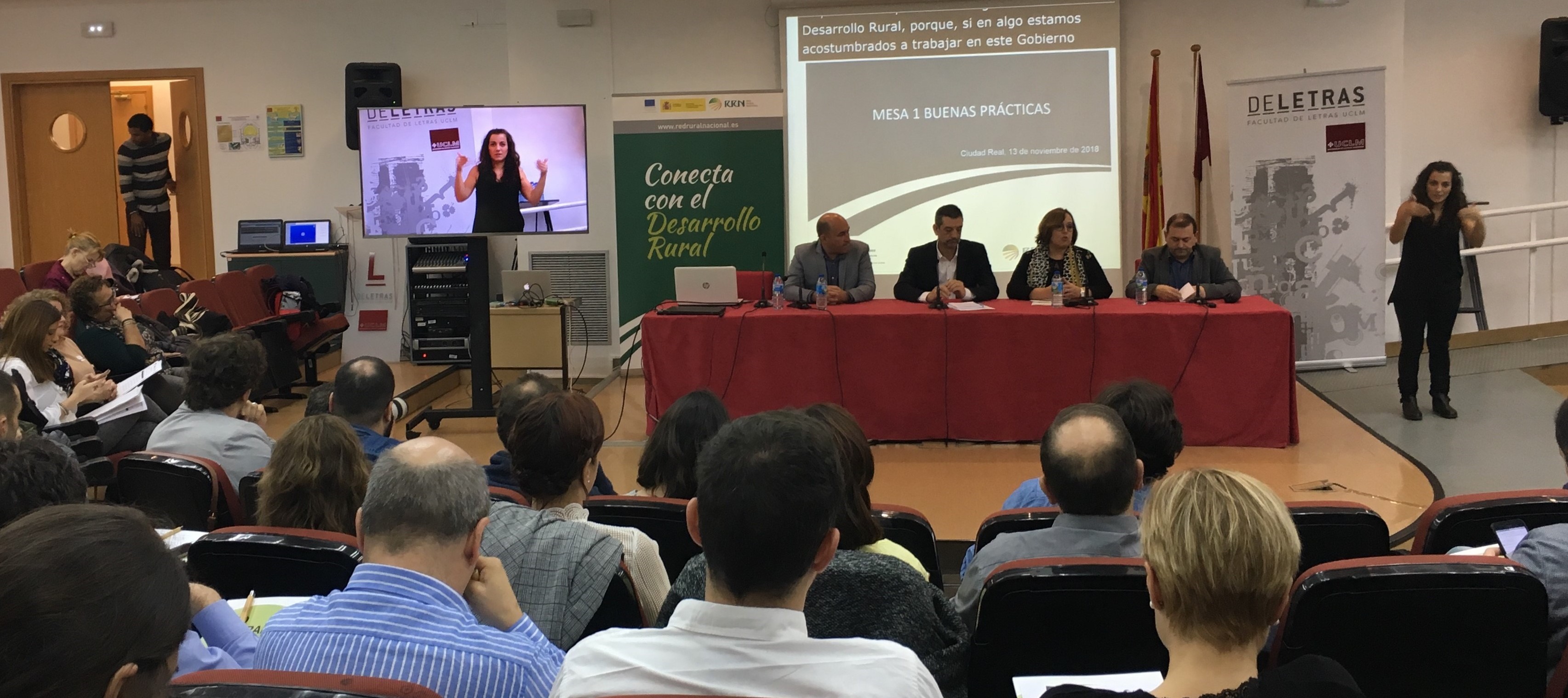
14 de November de 2018
Dinamización rural
The National Rural Network, at the suggestion of the Spanish Committee of Representatives of People with Disabilities (CERMI), organized this event aimed at exploring the advantages of working through cooperation and innovation to achieve inclusive rural development and respond to the needs of people at risk of social exclusion. It also explores the role that social organizations can play in addressing the challenge of depopulation.
More than a year after the Inter-regional Workshop on Inclusive Rural Development held in Ponferrada (León), the National Rural Network (RRN) and the Spanish Committee of Representatives of People with Disabilities (CERMI) have organized a new event bringing together social action organizations, local action groups, and those responsible for social and rural development policies from the autonomous communities.
This new event, held at the Faculty of Arts of the University of Castilla-La Mancha in Ciudad Real, had a predominantly practical component and was intended to serve as a meeting point for organizations operating in Extremadura, Castilla-La Mancha, Andalusia, and Madrid.
The conference began with an exchange of best practices linked to inclusive projects launched by various organizations. The sessions highlighted the ability of social inclusion activities to efficiently generate employment and provide social services to rural areas, an aspect that is particularly relevant due to its contribution to establishing and even influencing the return of population to rural areas. Specifically, the experiences presented by the Centro Rural Joven Vida ( CERUJOVI ) of COCEDER Extremadura, Plena Inclusión de Extremadura , the Social Entities Group ( CECAP ),the CEPAIM Extremadura Foundation , the CEPAIM Castilla La Mancha Foundation , and the Red Cross of Castilla-La Mancha were among those presenting their experiences.
The second part of the day focused on the presentation of various Inclusive Cooperation Projects launched by different organizations, including Laborvalia, EAPN Castilla La Mancha , Fundación Abraza La Tierra , Plena Inclusión Andalucía , Plena Inclusión Castilla y León, and even the experience of the Inter-autonomous Operational Group FúnGIGO was presented within the framework of the aid calls of the National Rural Development Program, proposing other alternatives to combine disparate objectives of different types of entities. The approaches expressed have highlighted the interest in cooperation and networking to contribute in a complementary way to various objectives from the perspectives of the organizations working in the territory.
Other action approaches have also had their own space from which synergies can arise with social action entities, such as the perspective of inclusive Local Development Strategies ( GAL Don Quijote and GAL Mancha Norte ) developed by the Local Action Groups within the framework of LEADER and other strategic ones at a regional level, such as the case of Integrated Territorial Investment, and in particular the case of the ITI of Castilla-La Mancha .
The platforms of social entities ( CERMI , EAPN ,Red Cross , CEPAIM Foundation , and COCEDER ) have shared a space for debate in a round table on the issues addressed during the day, highlighting the importance of establishing strategic alliances for inclusive rural development.
The day culminated with collaborative work through participatory dynamics focused on analyzing factors such as employment, social services, and new technologies and innovation from the perspective of social action organizations, as concrete lines of action to coordinate efforts to address the challenge of depopulation in rural areas.









